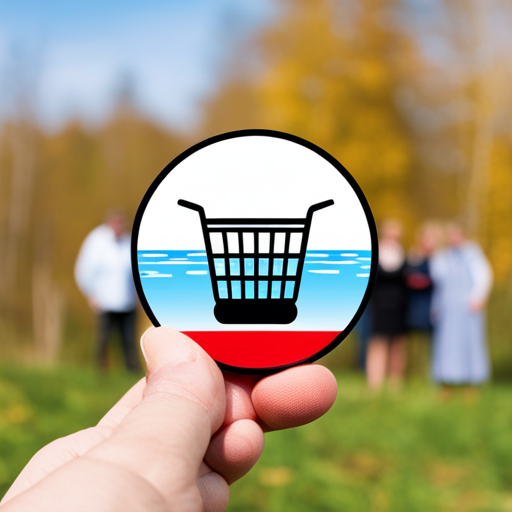Are you concerned about the health risks of PFAS, the man-made chemicals found in common household products? With up to 110 million Americans potentially exposed to PFAS-contaminated drinking water, it’s important to take steps to protect yourself and your family.
In this article, we’ll provide you with tips on how to avoid PFAS in household products, including natural cleaning supplies, careful label reading, and installing a water filter for PFAS-free water.
First, let’s discuss what PFAS are and how they can affect your health. PFAS, or per- and polyfluoroalkyl substances, are synthetic chemicals found in nonstick cookware, stain-resistant fabrics, and cleaning supplies. When these products are used or disposed of improperly, PFAS can contaminate soil and water sources, leading to potential health risks.
Studies have linked PFAS exposure to various health issues, including cancer, thyroid disease, and developmental problems in children. By taking proactive steps to avoid PFAS in household products, you can protect your health and reduce your risk of exposure.
Key Takeaways
– PFAS are man-made chemicals found in many household products, and exposure to them can lead to potential health risks, including cancer and developmental problems in children.
– Up to 110 million Americans may be exposed to PFAS-contaminated drinking water, and it is important to research and choose effective water filters to remove them.
– Eco-friendly alternatives to common household products can help reduce exposure to PFAS, and advocating for stricter regulations can protect both health and the environment.
– PFAS are known as ‘forever chemicals’ due to their persistence in the environment and human body, and taking proactive steps to avoid them in household products can help protect health and reduce risk of exposure.
What are PFAS?
You may be wondering what PFAS are, but as previously mentioned, they’re man-made chemicals commonly found in household products such as nonstick cookware, stain-resistant fabrics, and paints, and can contaminate drinking water sources.
PFAS stands for per- and polyfluoroalkyl substances, which are a group of over 4,700 different chemicals that don’t break down easily in the environment.
Exposure to PFAS can cause various health risks, including thyroid disease, decreased fertility, developmental delays in children, and increased risk of certain cancers.
Regulatory action has been taken in several states to limit the use of PFAS in products, but it’s still important to be aware of their presence and take steps to minimize exposure.
This includes reading labels carefully, avoiding certain products, and using natural cleaning supplies.
Installing a water filter can also help ensure that your drinking water is PFAS-free.
Sources and Contamination
Sources of PFAS contamination can be found in many common household items, such as nonstick cookware and stain-resistant fabrics. PFAS can also be found in cleaning products, food packaging, and even in some types of firefighting foam. These compounds have been widely used since the 1950s and are now present in the environment, contaminating our drinking water sources.
Exposure to PFAS can cause various health issues, including developmental problems, immune system dysfunction, and an increased risk of cancer. The EPA has set a health advisory level of 70 parts per trillion (ppt) for PFAS in drinking water. However, some studies suggest that even low levels of exposure can be harmful.
It’s important to be aware of PFAS sources and contamination to reduce your exposure levels and protect your health.
Prevention and Solutions
One solution to reduce PFAS exposure is installing a water filter that can remove these harmful chemicals from your drinking water. Look for a filter that specifically targets PFAS, such as activated carbon or reverse osmosis filters. It’s important to note that not all filters are effective at removing PFAS, so do your research before purchasing one.
In addition to installing a water filter, you can also reduce your exposure to PFAS by choosing eco-friendly alternatives to common household products. For example, instead of using nonstick cookware, opt for stainless steel or cast iron. Look for cleaning products that are labeled as PFAS-free or use natural alternatives such as vinegar and baking soda. It’s also important to stay up-to-date on government regulations regarding PFAS and advocate for stricter regulations to protect our health and the environment.
| Eco-Friendly Alternatives | Government Regulations | Water Filter Brands | |||
|---|---|---|---|---|---|
| Stainless steel cookware | States have rules and regulations regarding PFAS | Aquasana | |||
| Natural cleaning supplies | EPA has issued health advisories for PFAS in drinking water | Berkey | |||
| Baking soda and vinegar | Some states have set PFAS limits in drinking water | Clearly Filtered | Activated carbon filters | PFAS are known as “forever chemicals”due to their persistence in the environment and human body | Brita |
Conclusion
Congratulations! You’ve taken the first step towards protecting your health by learning about PFAS and how to avoid them in household products.
To reduce your exposure to these harmful substances, consider purchasing natural cleaning supplies, reading labels carefully, and installing a water filter for PFAS-free water.
Remember, prevention is key. Be mindful of the products you use in your home and the potential health risks they may pose. By making small changes and taking action, you can protect yourself and your loved ones from the negative effects of PFAS exposure.
Keep up the good work and continue to educate yourself on ways to live a healthier, safer lifestyle.
